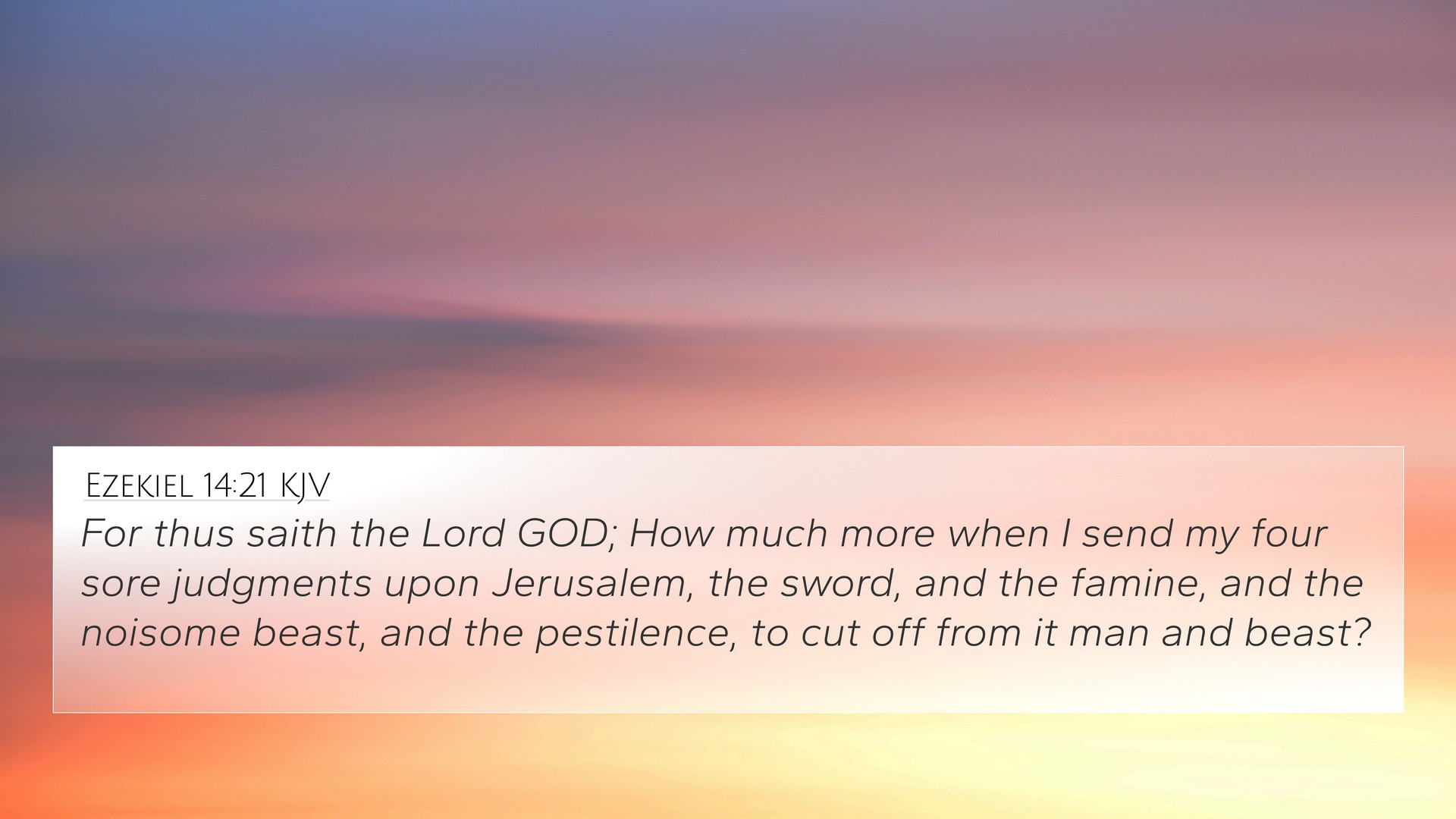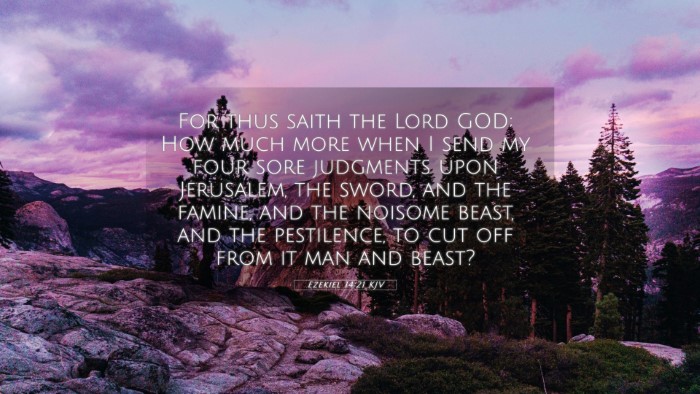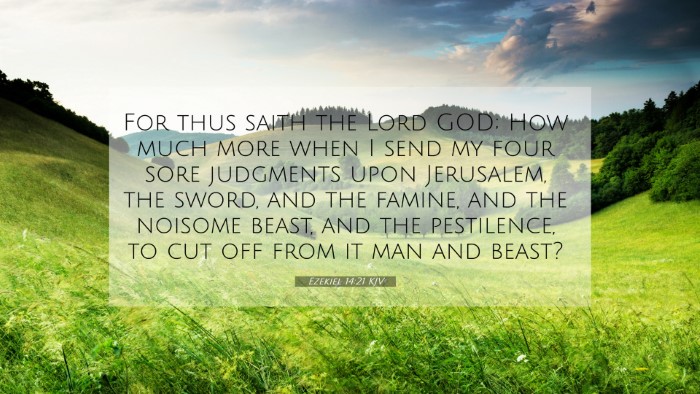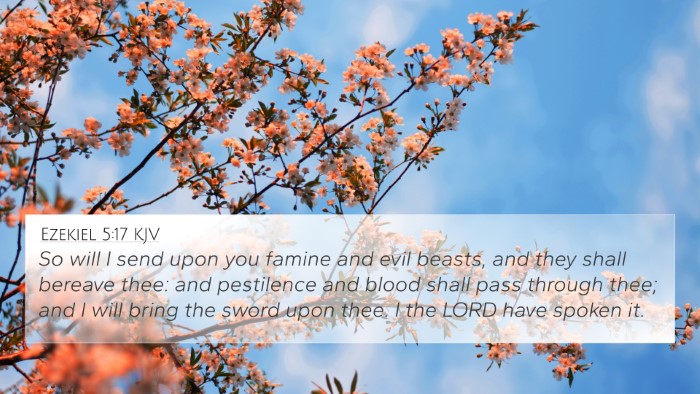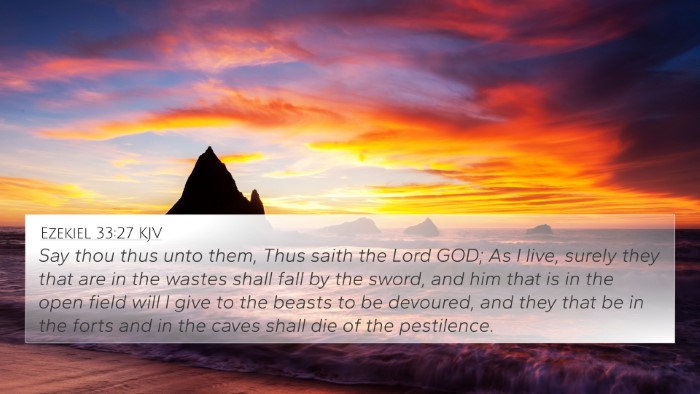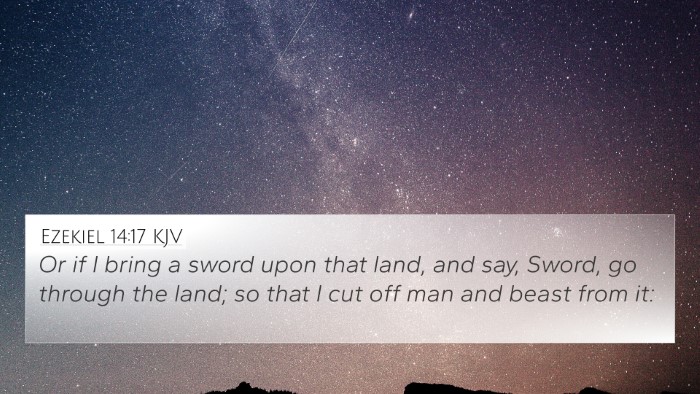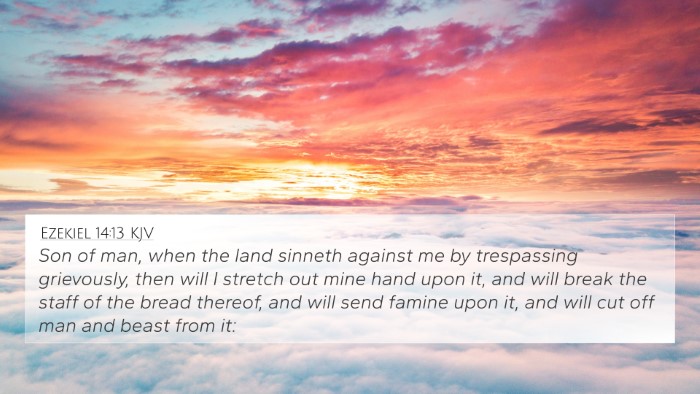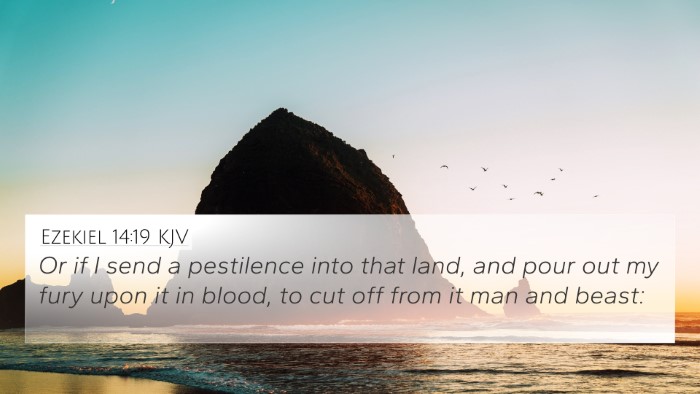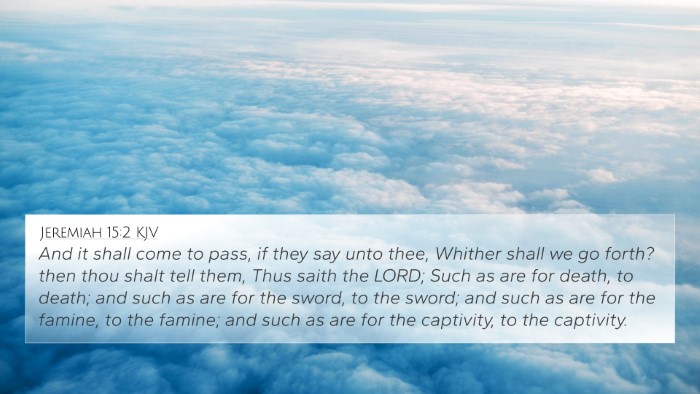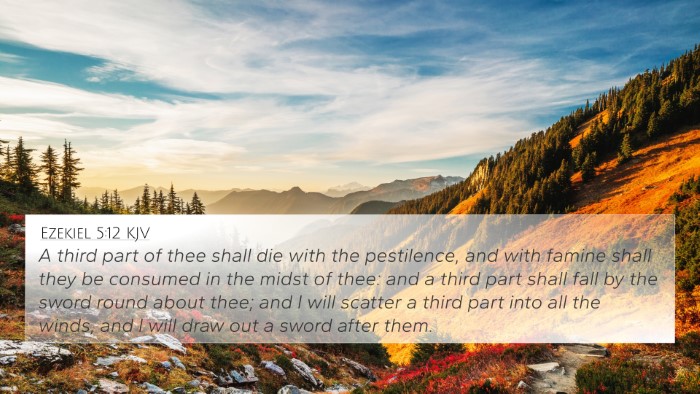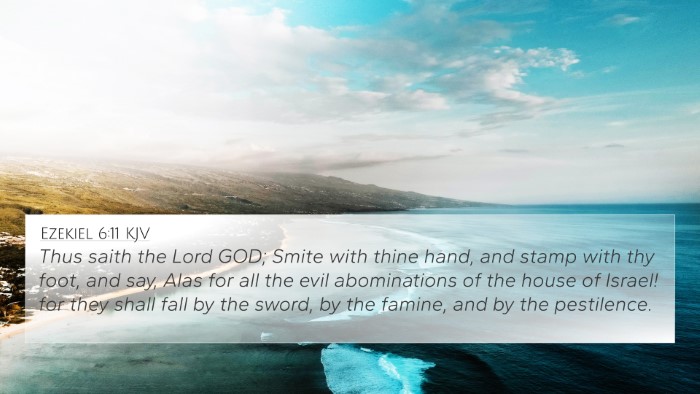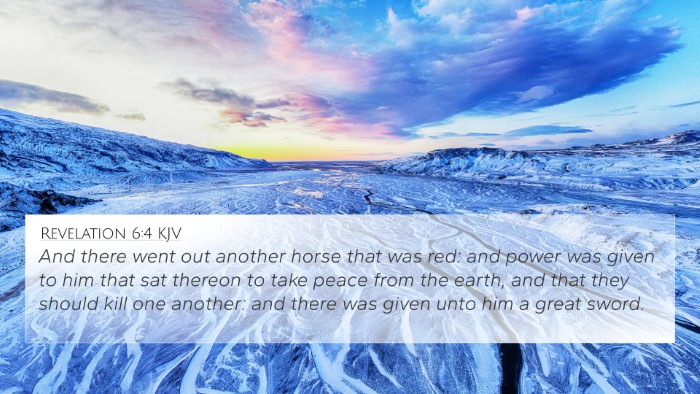Ezekiel 14:21 - Understanding the Verse
Ezekiel 14:21 (KJV): "For thus saith the Lord God; How much more when I send my four sword judgments upon Jerusalem, the sword, and the famine, and the noisome beast, and the pestilence, to cut off from it man and beast?"
Summary of Meaning
This verse is a part of God's warning to the people of Jerusalem through the prophet Ezekiel. It highlights the severe consequences of their unfaithfulness, emphasizing the catastrophic judgments that God is capable of bringing upon them. These judgments are enumerated as the sword, famine, wild beasts, and pestilence, signifying complete devastation.
Commentary Insights
-
Matthew Henry: Henry emphasizes that the judgments are not merely punishments, but they serve as warnings to the people. The severity of the pending actions reflects the greatness of their sin and the seriousness of turning away from God.
-
Albert Barnes: Barnes points out that the mention of specific judgments illustrates God's sovereignty and control over the elements of nature and life. This verse shows the multifaceted approach of God's judgment—spiritual, physical, and communal.
-
Adam Clarke: Clarke reflects on the symbolism of the “four sword judgments.” He notes that they represent completeness in judgment, affecting every aspect of life in Jerusalem. The mention of cutting off man and beast indicates total desolation and the severity of the consequences of disobedience.
Bible Verse Cross-References
This verse relates to several other scriptures that echo themes of divine judgment and spiritual consequences:
- Revelation 6:8: The four horsemen representing death and destruction.
- Jeremiah 15:2: Mention of the sword, famine, and pestilence as forms of judgment.
- Deuteronomy 28:15-68: The curses resulting from disobedience to God's commandments.
- Ezekiel 5:17: The concept of wild beasts coming as an instrument of punishment.
- Isaiah 66:16: God's judgment by fire and His sword.
- 2 Chronicles 7:13-14: God’s insistence on repentance during times of calamity.
- Lamentations 3:22-23: Reflects on God's mercy amid judgment.
Connections between Bible Verses
Understanding Ezekiel 14:21 in light of these connections enriches our grasp of biblical themes:
- Divine Judgment: The judgments portrayed in Ezekiel recur throughout Scripture, providing a unified theme of accountability to God.
- Repentance and Mercy: Many cross-referenced verses remind us of the potential for mercy following repentance, as seen in 2 Chronicles 7:14.
- Consequences of Sin: The connection among the mentioned judgments emphasizes the seriousness of sin and its results on personal and communal life.
Thematic Bible Verse Connections
When conducting a cross-reference study of the Bible, thematic connections become essential:
- Sovereignty of God: Highlights God’s authority and power to enact judgment as seen across the Old and New Testaments.
- Restoration: Many of these connections lead to themes of restoration after judgment, reflecting God's desire for reconciliation.
- Call to Action: Verifying cross-references informs readers of how to respond to God’s warnings, urging repentance and commitment.
How to Use Bible Cross-References
Cross-referencing enhances biblical understanding and provides clarity on how scriptures interact:
- Utilize a Bible concordance to locate verses quickly.
- Employ a Bible cross-reference guide to identify thematic links.
- Implement Bible cross-reference systems for structured study.
Tools for Further Study
Consider employing specific tools and methodologies to facilitate deeper study:
- Cross-reference Bible study: Engage with the text in a way that considers both immediate and broader scriptural contexts.
- Bible reference resources: Leverage commentaries, dictionaries, and study Bibles designed to interlink biblical themes and narratives.
- Bible chain references: Create chains of scripture that lead from one verse to another, highlighting relationships and common messages.
Conclusion
In conclusion, Ezekiel 14:21 serves as a severe reminder of God's judgment and a call to awareness for all readers. By exploring cross-references, we discover a tapestry of Scripture that speaks to the realities of sin, the seriousness of divine judgment, and the overarching narrative of grace and restoration.
